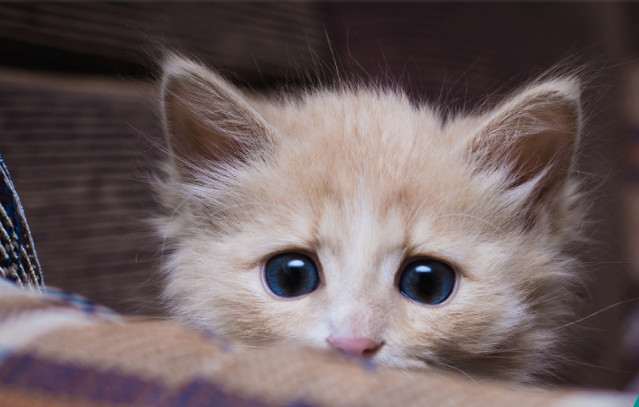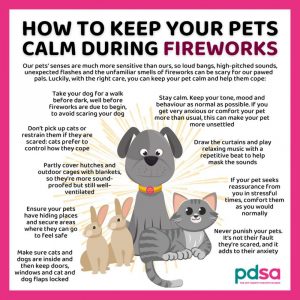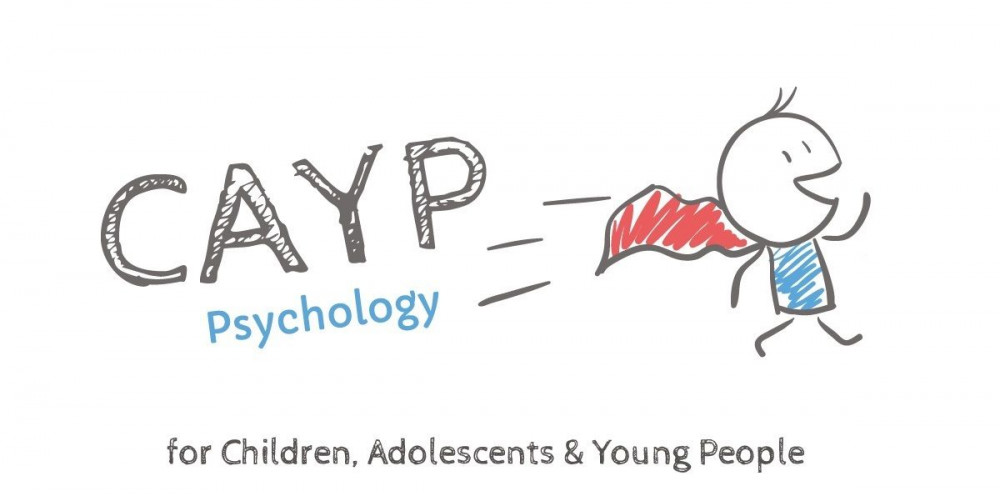As we head towards 5th November, pet owners know that the sights and sounds of fireworks can be very frightening. The enhanced senses of many animals make the loud bangs, vibrations and flashes very scary. And the sudden noises and flares of bright lights will continue throughout the forthcoming weekend, not just on Guy Fawkes Night.
The People’s Dispensary For Sick Animals (PSDA) have shared some simple steps you can take to prevent your pets becoming scared while they are young, or to help keep older pets safe and calm.
- Walk your dog while it’s still light.
- Make sure your pet isn’t left alone.
- Keep doors, windows, cat and dog flaps closed.
- Draw the curtains when it gets dark.
- Move outdoor pets into a well-ventilated shed or garage, away from the windows.
- Let your pet hide if they want to.
- If your pet is used to seeking reassurance from you, comfort them as you would normally.
- Keep your tone, mood and routine as normal as possible.
- Make sure you have treats and toys at home.
- Never punish your pets – it’s not their fault they’re scared and it adds to their anxiety.
More helpful advice is shared on the poster below, whilst additional tips from the PDSA include:
- Pheromones – pheromone products can sometimes help relieve stressed pets. They are designed to mimic natural cat or dog pheromones and come in various forms, including sprays, plug-in, diffusers and collars.
- Create a playlist – using music to mask the sound of fireworks can help keep pets calm. Here’s a link to PDSA Spotify playlists www.pdsa.org.uk/calming-playlists
The PDSA say these are the signs that your pet is starting to become afraid.
DOGS: Trembling and shaking • Clinging to owners • Excessive barking • Cowering and hiding • Trying to run away • Soiling the house • Pacing and panting • Refusing to eat • Seeming depressed or withdrawn • Freezing • Yawning and licking lips • Digging
CATS: Cowering and hiding behind or on top of furniture • Trying to run away • Soiling the house • Refusing to eat • Seeming depressed or withdrawn • Crouching to the ground • Big pupils • Swishing their tail
RABBITS : Stamping hind feet • Staying motionless • Trying to escape • Eating less • Hiding
More information may be obtained from the PDSA website: https://www.pdsa.org.uk/get-involved/our-campaigns/fireworks-leaflet



















